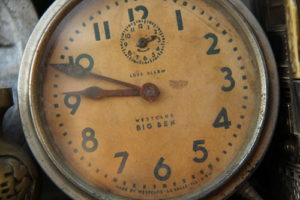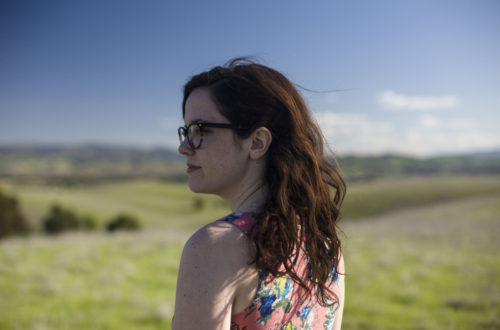
Letters to Emma #2
This is the second in a series of posts I plan to write about grief and my experience of it after the death of my husband Paul 4½ years ago. I will write each post in the form of a letter—a letter to Emma. I’m doing it this way for two reasons: visualising an audience of one will help me to write about what is still a difficult subject, and Emma was the one who first asked me to consider writing something on this topic. It’s my hope and prayer that by blogging about my personal experience of death and grief, I might ease the journey for someone else.
Dear Emma
It was hard to write the last letter, but as God has been teaching me—over and over, with such patience—not all hard things are bad things. It seems so obvious when you say it, but I’m still surprised at how slow I am to learn and how eager I am to find an easier, more comfortable way through difficulty. So although I feel as if I’ve been poking at old scars I would rather have left alone, I am convinced that the most sensible and courageous thing to do is to face up to grief and continue to work through it, rather than hide from it.
The thing is, grief really does require work. It overwhelms every aspect of your person—heart, mind, soul and body—and demands that you attend to it and engage with it.
It used to be that people thought grief was a process with several stages and that once you’d been through those stages you were done with it. Almost like a checklist, you could be assured of getting through it and over it, and eventually being free of it. Oh that it were so neat and tidy.
Grief is like being overrun by a capricious foreign power you can neither reason with, nor control. Even now over four years after losing Paul, it finds the strangest ways to remind me that it’s still there, seemingly at random, without pattern or logic and as unpredictable as it is intense. Sometimes I mentally prepare myself for a particular event or occasion, expecting that it will plunge me back into sadness, only to find that I’m not troubled by it at all. Ironically, my lack of distress then causes distress as I worry that I am forgetting Paul. At other times the most innocuous thing will trigger a flood of tears or a sudden memory and a rush of adrenaline, and I am left feeling vulnerable and bewildered. I’m learning to acknowledge and accept that that’s just the way of grief. If I try to ignore it or squash it down, it has a way of leaking out eventually, inevitably.
Tears and adrenaline—two familiar companions that remind me of grief’s physicality. In the last letter I tried to describe the emotional and mental effect Paul’s absence had on me and how final, insurmountable and complete it was. With the perspective granted by time, I’m understanding more and more how his sudden, irreversible absence caused a definable, involuntary reaction in my body that was so immediate and particular it taught me never to underestimate grief’s power, either in me or in others.
A surge of stress hormones began the moment Paul walked in from the garden on a dazzling summer’s day. At first I didn’t realise what was happening to him, but subconsciously it registered—something was terribly wrong—and as the fear kicked in, so too did the hormones.
I guess we all know that feeling. As our bodies respond to stress and trauma they release large amounts of adrenaline and cortisol—a kind of hard-wired ‘fight or flight’ reaction—causing blood to flow away from the gut and into the muscles, and preparing us to either go on the attack or run away. Heart rate, blood pressure, respiration and body temperature all increase, as the brain goes on high alert. This is where it got confusing for me, Emma. In the rush to get Paul to hospital the stress hormones had set off every alarm bell in my body, but after he died, my body began to react to the emotional shock of sudden loss. Cue the release of protective, narcotic-like chemicals that helped to numb the pain, enveloping me in a mist that was as disorienting as it was isolating.

Emma, even as I write this, my body is responding to the memories: quickening pulse, heightened alertness, the knot in my stomach, and weariness. I don’t know if this will always be so, but I cannot seem to forget my desperate search for enough energy to counter the dragging fatigue, the mental effort required when my brain was shrouded in fog, my attempts to eat and sleep when I had neither appetite nor the ability to rest. Even my eyesight changed. The optometrist assured me this was not unusual and that it would settle down, given time. Time. Everything was going to take time.
For many months I lived with a foggy, inattentive brain and a body that was primed for the next emergency even when I slept, or tried to sleep. When it finally did come, sleep was not the rejuvenating rest it should have been, but a restless, fretful movie theatre featuring constant re-runs of Paul’s final hours and death. Food tasted like cardboard but I tried to eat it anyway—I knew it upset others if I didn’t. I lost weight.
Weight. Even as I lost it, I felt like I gained it—grief is heavy, like carrying an unwieldy, leaden backpack you can’t put down. One afternoon, two days after the thanksgiving service for Paul, I said goodbye to the last of my family and friends who had stayed with me having travelled from interstate. I held myself upright until they had gone and then I gave in to the weight. For days I shuffled around the house, bent over like an elderly woman with a spine that could no longer support her. Under grief’s weight my body’s immune system was the final thing to collapse: six sinus infections in twelve months.
And then there were the tears. I’d spent my life moving from place to place, so I’d learned not to let anyone get too close. Apart from Paul, few people had ever witnessed me crying. But early on I discovered that it was okay to show my tears; nothing disastrous happened, and anyway, I didn’t have the energy to keep them in. Allowing others to witness my tears taught me to be less self-protective and reserved in my relationships and I began to understand that one of the most loving things I could do for the people around me was to be open and vulnerable, giving them permission to care for me and grieve with me.
Emma, even then there were some tears I still needed to keep private, coming as they did from a depth of sorrow and anguish of heart too great, too frightening, to be shared. In these moments of utter darkness I found solace in the laments of Scripture. Even though their experiences differed from mine, I was comforted by the anguished cries and desperate words of men like Job, David and Jeremiah, as they faced hardship and calamity. Their laments gave my own words a rhythm and pattern to follow, speaking the aching truth to God as I bared my heart to him, and then turning to him once more, to trust in his unchanging character and cling to his loving promises.
When my strength failed, his never did; when I could not think straight, his word was clear and sure; when it felt like I was at the mercy of unseen forces and I could not—didn’t even want to—go on, he reminded me that nothing in all creation is more powerful than he is. Not even my sorrow.
Some might call it tough love, but even when I thought I should carry my heartache alone, God’s love made it impossible. By taking me beyond what I could bear on my own, our Father in heaven taught me to allow others to help—to be his arms, hands and feet—and to let them in. He showed me how his tender care is embodied in his people—the very ones who listened to me, prayed for me, wept with me, served, held and fed me, encouraged me, checked up on me and protected me. Just as he designed my body to react to the stress and trauma of loss, so too he created a body of believers to respond to people in need, expressing his love and mercy through their words and deeds. The anatomy of grief meets the anatomy of his grace.
Thanks for persevering with me along the way, dear friend—for embodying God’s loving care.
Featured image: Photo by Prixel Creative | Lightstock.com




